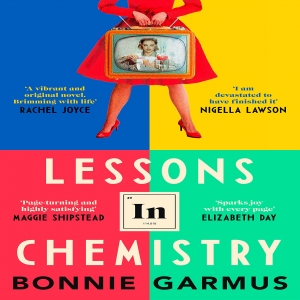
 Pachu Menon
Pachu Menon
.jpg)
As an avid reader, I have come across some of the weirdest titles for books, which have often left me quite clueless as regards the contents and their relevance to the names given.
A good title, it is said, can intrigue, summarise, and set the stage for the narrative. A writer is always advised that a good title should be crafted to pique the reader's interest and align with the genre and tone of the book.
But of late, it is a trend to have authors picking up titles for their works which are not in resonance with the narrative, yet do manage to raise the curiosity quotient among readers purely for the peculiar names given to their creations.
For instance, the "Biology of Love" refers to the hormonal and neurological processes in the body that drive feelings of love and attraction. As the title of a book, one fails to understand how they can kindle the sort of interest reserved for fictional stories that are miles away from the realms of a broad scientific study of life.
It appears eerie to have books touting titles which, instead of showcasing the storytelling abilities of the writer, hint at glimpses of the vast body of scientific knowledge, the scientific method, and the diverse fields of scientific inquiry.
How about "The Anatomy of Economics," which refers to a way of understanding economics by dissecting it into its fundamental components and relationships, much like analysing the human body in anatomy!
Incorporating scientific or economic themes or concepts in a narrative is not uncommon, but when the storyline is bereft of any such consideration, such titles, more than amusing, will only serve to mislead the reader.
Nonetheless, the deluge of books flooding the market with titles that make a reader wonder whether he has mistakenly stepped into a student's book depot dealing in academic textbooks characterises the popularity of the drift that is in vogue.
I am presently reading "Lessons in Chemistry" by Bonnie Garmus! No, the novel does not have anything to do with imparting the finer nuances of the scientific study of matter, its properties, and their transformation through chemical reactions!
It is the story of a legion of housewives in the early 60s daring to change the status quo, 'one molecule at a time.' A review states that, "Bonnie Garmus titled her book 'Lessons in Chemistry' because it reflects the core of the story. The title cleverly uses 'chemistry' both literally, referring to the protagonist's profession, and metaphorically, representing the complex interactions and societal shifts she navigates."
Such 'allusions' do serve to add value to the narrative.
So much for the titles that seem to 'catalyse' the reader's interest!
But have writers been far behind when it comes to 'searching' for stories?
A writer's imagination, it is said, runs wild. The freedom and creativity that writers experience when generating ideas and crafting stories define that state where their minds are free to explore possibilities, create exclusive scenarios, and express themselves without limitations.
That unique genre of writing where some Indians authors are liberally taping, twisting, and to some extent mutilating, the great mythological epics to arrive at a style of narration where the whole story takes on a new life resulting in a novel 'creation' which is more acceptable and palpable to the readers as a work of fiction is scaling new heights.
The animosity between cousins eventually escalated into a full-blown war, which forms the theme of the great Indian epic 'Mahabharata'. This theme has been adapted so many times to reflect modern corporate settings that one has eventually lost count of them.
Using the epic's plethora of complex characters and power struggles to explore themes of ambition, betrayal, and ethical dilemmas in business, the timeless relevance of the mythological text's moral and philosophical teachings in navigating the intricacies of the modern world remains unquestioned.
Making forays into diverse fields with numerous specialisations which afford enough scope to conceive themes and characters, many authors have given shape to stories which have sprouted from the seed of an idea rooted deeply in such settings.
As two popular genres that often overlap, medical thrillers and legal dramas have been well-received and enjoyed by a large number of readers.
Besides romance and horror, industries, politics, history, technology, art, religion, and science, to name a few, have provided fertile minds with ample opportunities to elaborate on ideas triggered by a study of such subjects, which subsequently transform into compelling stories.
Employing fresh perspectives and ideas, writers have broken all barriers while venturing into previously uncharted territories. Delving into areas previously untouched by literature, the current corps of authors shows no inhibitions in challenging established narratives and conventions.
Anything and everything can become an ideal subject for a compelling story plot. This has been more than evident in some of the latest published releases, where writers have gone overboard to convey a sense of purposefulness in weaving highly imaginative scripts around seemingly innocuous ideas.
Moving over from self-help and motivational books, readers now have to contend with a series of books which convey thoughts that are 'witty and brutally honest' and portend to be a reflection of their inner voice.
But what has really been a surprising revelation is the fact that some people today make a conspicuous choice of what they read, or at least the books that they buy.
Influenced by the 'social status' factor, the choices are indicative of their 'need' to conform to the taste of the crème de la crème of society.
Well, writing indeed has traversed a long and winding path, with the prevailing mood of the period deciding the literary genre that would gain popularity with readers.
Suffice it to say, the readers, too, have had their preferences!